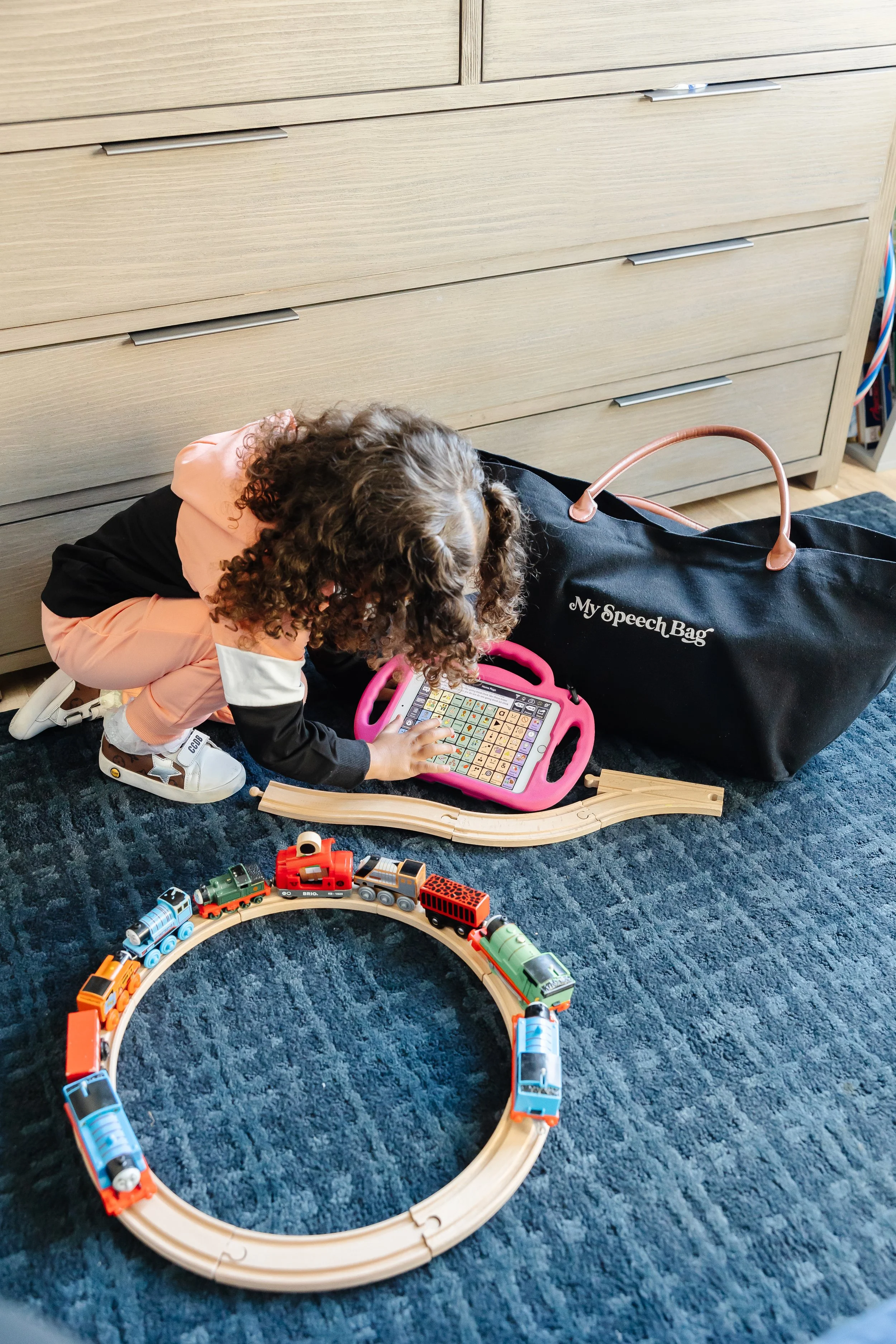5 Signs Your Child May Need Speech Therapy
Every child develops at their own pace, but sometimes speech and language delays can benefit from early speech and language support. Here are five signs it might be time to consult a speech-language pathologist (SLP):
1. Delayed Communication
If your child isn’t meeting typical speech and language milestones, such as saying their first words by 12–15 months or combining words by age 2, then it’s a good idea to seek an SLP evaluation.
How SLPs help: We create personalized plans to encourage all forms of communication. These methods may include gestures, pictures, sign language, or use of a speech-generating device. Early intervention speech therapy focuses on building early communication skills through play and daily routines.
Speech and language milestones can be found here:
2. Articulation Errors
It’s normal for young children to mispronounce some sounds, but if your child’s speech is hard to understand past age 3, they may need support with articulation.
How SLPs help: We teach correct sound production using fun, engaging activities that help children improve speech clarity and confidence.
Speech sound development chart can be found here:
3. Difficulty Understanding Directions
If your child struggles to follow everyday instructions, such as “go get your shoes” or “put it on the table,” then it may indicate challenges with receptive language. For older children, this may also appear as difficulty with reading comprehension or understanding lessons at school.
How SLPs help: We use pictures, gestures, routine instructions, practice, and individualized supports to strengthen understanding.
4. Limited Vocabulary
By preschool age, children are learning and using new words regularly. If your child’s vocabulary isn’t growing quickly or they become frustrated when trying to communicate, they may benefit from speech and language support.
How SLPs help: We build vocabulary through play-based learning, books, interactive games, and activities that match a child’s interests, making it easier to remember and use new words.
5. Difficulty Combining Words into Phrases or Sentences
By age 2–3, most children begin putting words together (like “want toy” or “go outside.”) If your child rarely combines words, they may need help with sentence building.
How SLPs help: We model short, meaningful phrases and encourage your child to expand their language naturally during play, reading, and daily routines..
Trust Your Instincts
You know your child best. If you notice any of these signs, a speech and language evaluation can give you clarity and peace of mind.
At MAPS Speech Therapy, we offer virtual, family-centered pediatric speech therapy for families in Indiana and Maryland. Our sessions are play-based, neurodiversity-affirming, and tailored to your child’s needs.
📞 Contact us today to schedule a consultation and learn how we can support your child’s communication journey.







